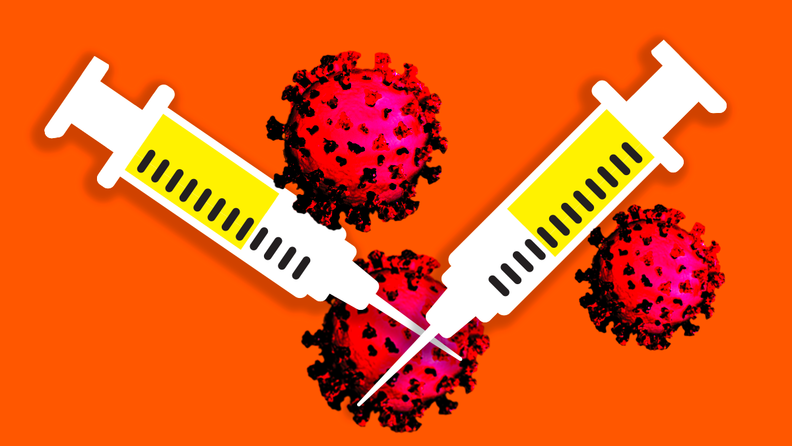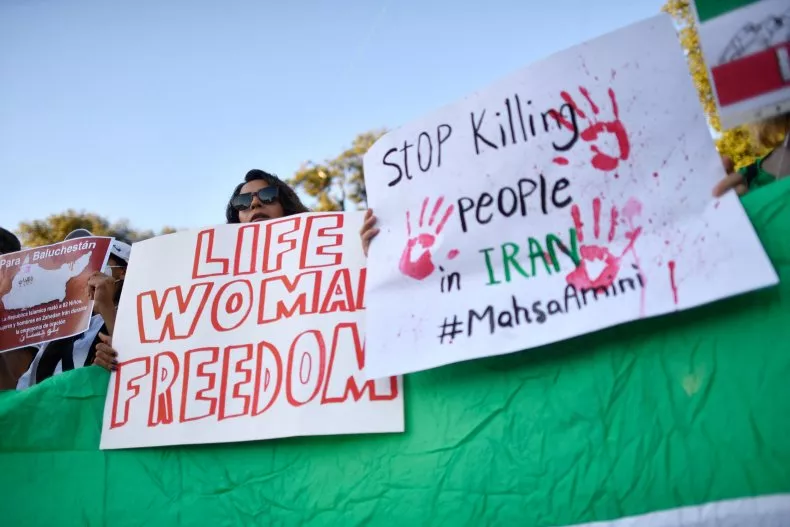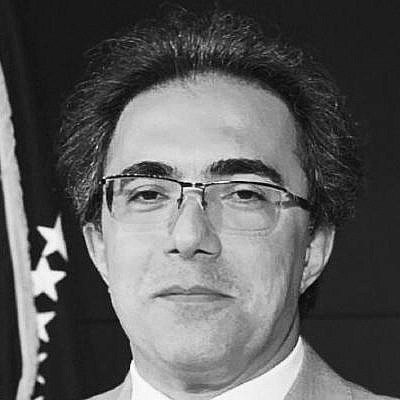China’s push to control Americans’ health care future
Published on: 2021-02-03
U.S. officials say the Chinese government is trying to collect Americans’ DNA, and they believe a recent offer from a Chinese company for assistance in COVID-19 testing was suspicious. Jon Wertheim reports.
https://www.cbsnews.com/news/biodata-dna-china-collection-60-minutes-2021-01-31/
For all the polarization that grips Washington, here’s a source of rare consensus: the emerging threat of China’s push to acquire our health care data, including the DNA of American citizens. U.S. officials tell us the communist regime’s aggressive collection of our most personal information presents a danger both to national security and our economy. As alarm bells ring across agencies, parties, and presidential administrations, different branches of government have taken action over the past year to stem the tide of our medical data flowing to China. The quest to control our biodata – and, in turn, control health care’s future – has become the new space race, with more than national pride in the balance. Our investigation begins with an unsolicited and surprising proposal that came from overseas at the onset of the COVID crisis.
Early last March, the state of Washington was the site of the first major coronavirus outbreak in the U.S. As COVID rates and the need for tests were spiking, BGI Group, the world’s largest biotech firm – a global giant based in China – approached the state of Washington with an enticing offer.
In a strikingly personal letter to the governor, BGI proposed to build and help run state-of-the-art COVID testing labs. BGI would quote “provide technical expertise,” provide “high throughput sequencers” and even “make additional donations.”
It seemed like an offer the state couldn’t refuse, especially given the desperate need. But officials were suspicious about BGI and its connections to the Chinese government.
Bill Evanina: They are the ultimate company that shows connectivity to both the communist state as well as the military apparatus.
Bill Evanina recently stepped down as the top counterintelligence official in the U.S., a veteran of both the FBI and CIA. He was so concerned by BGI’s COVID testing proposals, and who would ultimately get the data, that he authorized a rare public warning: “Foreign powers can collect, store and exploit biometric information from covid tests.”
Bill Evanina: We put out an advisory to not only every American, but to hospitals, associations, and clinics. Knowing that BGI is a Chinese company, do we understand where that data’s going?
Jon Wertheim: Tens of millions Americans getting COVID tests this year, you don’t think a lot of them are thinking, “Boy, where is this data going, what third party’s involved in this?”
Bill Evanina: I would proffer no one’s thinking that. But this shows the nefarious mindset of the Communist Party of China, to take advantage of a worldwide crisis like COVID.
Evanina suspects these lab offers are modern-day Trojan horses. BGI comes to the U.S. bearing gifts, but harboring other motives. It’s unclear whether BGI, or any COVID tester, would get DNA from nasal swabs, he says, but the labs are a way to establish a foothold, to bring their equipment here, start mining your data, and set up shop in your neighborhood.
Edward You: You have to take a step back and ask yourself who has access to that data.
Supervisory Special Agent Edward You is a former biochemist turned FBI investigator.
Edward You: And with that, there’s a very uncomfortable truth that comes out, that in the last decade or so, you’ll see that China has heavily invested, through the purchase or acquisition of actual companies, access to our data.
Jon Wertheim: If the question is where is this data going, all roads lead to China?
Edward You: They are the biggest player right now.
The authoritarian government of China and its leader Xi Jinping have been boldly open about their ambitions to beat the west and reap the benefits of advances in DNA science and technology. The communist regime even has a published manifesto with a catchy name.
Edward You: They have something called Made in China 2025. And in these national strategies, they absolutely call out wanting to be the dominant leader in this biological age. So wanting to be the leader and being able to develop vaccines, precision medicine.
For all the classified briefings about China that Bill Evanina received, the threat really hit home when he called home.
Bill Evanina: This is the argument I would have with my dad. Is ten years from now– my dad gets a phone call and is told, “Hey, by the way, we understand you’re gonna develop hypertension. And you’re on the verge of Parkinson’s. Here are three medicines you should take moving forward to help alleviate some of the symptoms.” My dad’s gonna be like, “Well, how do they know this?” And the company’s from China. Because they’ve already micro-targeted my dad based upon his DNA. And my dad says, “Okay, (CLAP) I’ll do it.”
Jon Wertheim: The devil’s advocate argument would say, “Listen, if you’re able to pinpoint something in my DNA, I’ll sign up for that.”
Bill Evanina: That’s exactly what my dad said. (LAUGH) So my argument is, to him, from a long-term existential cost to our nation, do we want to do that? Do we wanna have another nation systematically eliminate our health care services? Are we okay with that as a nation? If we are as a nation, then so be it. But that’s what’s happening.
Our dependence on China during COVID – for PPE, for masks – will pale in comparison to our potential health care dependence going forward, according to Edward You of the FBI.
Edward You: What happens if we realize that all of our future drugs, our future vaccines, future health care are all completely dependent upon a foreign source? If we don’t wake up, we’ll realize one day we’ve just become health care crack addicts and someone like China has become our pusher.
Jon Wertheim: Health care crack addicts, you say?
Edward You: Right. If they’re in a position to be able to offer you personalized, effective, low-cost health care, would we be in a position to say no, I don’t think so?
Jon Wertheim: How close are we to that?
Edward You: I don’t know how close we are, but I can feel it breathing down our neck.
Jon Wertheim: This sounds a little xenophobic. I mean, if China is the industry leader here, why wouldn’t you do business with them?
Edward You: Well, at the end of the day, it’s not about the Chinese people. It’s about the Chinese government.
He says China’s government understands that their future success hinges on accumulating large amounts of human DNA.
Edward You: They are building out a huge domestic database. And if they are now able to supplement that with data from all around the world, it’s all about who gets the largest, most diverse data set. And so, the ticking time bomb is that once they’re able to achieve true artificial intelligence, then they’re off to the races in what they can do with that data.
Jon Wertheim: You’re saying biggest data set wins?
Edward You: Correct.
Think of DNA as the ultimate treasure map, a kind of double-helixed chart containing the code for traits ranging from our eye color to our susceptibility to certain diseases. If you have 10,000 DNA samples, scientists could possibly isolate the genetic markers in the DNA associated with, say, breast cancer. But if you have 10 million samples, your statistical chances of finding the markers improve dramatically, which is why China wants to get so much of it.
Edward You: It is one-sided, though. China passed a law last year. The Chinese government has absolutely clamped down on any access to their biological data or their biological samples. So it is a one-way street.
Jon Wertheim: So, their data’s not leaving China but they’re sucking it in from all over the world?
Edward You: Right.
It’s not just DNA, according to Bill Evanina. He and his colleagues have been tracking China as the country uses less-than-honorable methods to vacuum up all sorts of data from outside their borders.
Bill Evanina: They do it both legitimately and illegitimately. They steal some data, but they’re very strategic in how they acquire it from around the world.
Jon Wertheim: You’re saying at least in some cases, China’s hacking to get this information.
Bill Evanina: China is number one in the world at any kind of hacking capability, and they’re brazen about it.
In December, John Ratcliffe, then the director of national intelligence, went so far as to name China as the number one national security threat to America, citing specifically, their theft of data and technology.
Bill Evanina: You have probably five or six health care companies the last five years who have been, I would say, penetrated, exfiltrated, hacked by China.
Jon Wertheim: What’s the likelihood you and I have been hacked by China?
Bill Evanina: 110%.
Jon Wertheim: Personal data?
Bill Evanina: Personal data. Current estimates are that 80% of American adults have had all of their personally identifiable information stolen by the Communist Party of China.
The concern is that the Chinese regime is taking all that information about us – what we eat, how we live, when we exercise and sleep – and then combining it with our DNA data. With information about heredity and environment, suddenly they know more about us than we know about ourselves and, bypassing doctors, China can target us with treatments and medicine we don’t even know we need.
Edward You: Think about the dawn of– the Internet of Things and the 5G networks and the– and smart homes and smart cities. There are going to be sensors everywhere. It’s gonna be tracking your movement, your behavior, your habits. And ultimately, it’s gonna have a biological application, meaning that based on the data that gets collected, they’ll be able to analyze that and look at improving your health. That data becomes incredibly relevant and very, very valuable.
Jon Wertheim: You’re describing data almost as– as a commodity.
Edward You: Data is absolutely gonna be the new oil.
All this may sound like a premise for a dystopian futuristic science fiction movie, but U.S. government officials say the picture gets even scarier given how China is already using DNA strategically against its own citizens today.
Sophie Richardson: These are some of the most serious abuses that the Chinese government has committed in modern history.
Sophie Richardson, director of the China program for Human Rights Watch, says China has rounded up more than a million Uyghurs, Chinese citizens who are a Muslim minority, and jailed them in camps. The U.S. government calls this a crime against humanity.
Sophie Richardson: They’re being subjected to political indoctrination. They can’t use their own language. They’re not allowed to worship. Those people are highly restricted in how they can live their lives.
Jon Wertheim: This is a population under constant surveillance?
Sophie Richardson: Yeah. It’s– it’s a region that’s awash in surveillance technology, ranging from, you know, facial recognition software, surveillance cameras, data doors, Wi-Fi sniffers.
Part of the social control includes the forced collection of DNA. Under the guise of free physicals for Uyghurs, Richardson says China is actually collecting DNA and other biometric data that’s then used specifically to identify people, target other family members and refine facial recognition software. And those, national security officials say, are just the uses we know about.
In response to the Uyghur repression, last July, the U.S. Department of Commerce sanctioned two subsidiaries of a Chinese biotech company. That company? BGI, the same one offering Washington state the COVID testing lab.
Edward You: Those companies were identified to have been facilitating the collection of genetic information of ethnic Uyghurs. If anything, that should serve as a warning signal for all of us that that is potentially what can happen if our data gets out of our hands, how it could be used.
It’s not a coincidence BGI is involved in the Uyghur crisis given the company’s close relationship with the communist regime. In 2010, after receiving $1.5 billion from China’s government, BGI was able to expand dramatically.
Bill Evanina: They’re monstrous. They have contracts with over 60 countries globally to provide not only genomic sequencing, but also to provide analytics.
Jon Wertheim: They say, “We’re a private company.” Are they?
Bill Evanina: There’s no such thing as a private company in the Communist Party of China.
Under a series of laws unthinkable in western democracies, Chinese companies like BGI are obligated to share data with the Chinese regime. It’s as if, say, Google, Amazon and Facebook had to turn over their data to the CIA, on demand.
Jon Wertheim: So you’re trying to tell me that the Chinese government, whether it’s biotech or– they can say, “Hey, we want your information. Please provide it.”
Bill Evanina: Absolutely. You must provide any and all data that’s asked for by the Communist Party in China. Which, the scary part is, sometimes it’s not all their data. If you are in a joint partnership, a joint venture, their data is now susceptible to go to the Chinese Communist Party.
As BGI touts on its own website, the company has been steadily developing partnerships with hospitals and biotech companies inside the United States, giving BGI — and by extension, the Chinese government — potential access to our DNA data, sequencing technology and analytics.
Jon Wertheim: How does BGI partner with U.S. companies?
Bill Evanina: So they do it, first of all, with money. So investment. I wanna invest $10 million, $20 million, $80 million in your company. Every company says yes, come on in. At the same time they’re gonna have an unwritten rule that they’re gonna be able to take that data and your sequencing capabilities. And what they don’t know is China’s keepin’ it and they’re givin’ you a copy back.
BGI declined our request for an interview and said in a statement, “the notion that the genomic data of American citizens is in any way compromised through the activities of BGI in the U.S. is groundless.” They said they are “a private organization” founded “to benefit human health and wellbeing.”
Remember BGI’s proposal to build COVID labs for the state of Washington? 60 Minutes learned that the company made similar proposals to more than five other states, including New York and California…. And, after federal officials warned against partnering with BGI, each state said no to BGI’s labs.
It’s not just China that’s recognized what a valuable commodity your DNA can be. As you’ll hear: some of the fastest-growing U.S. tech companies are in this space, as well. In fact, you may have already surrendered your DNA by spitting in a tube.











